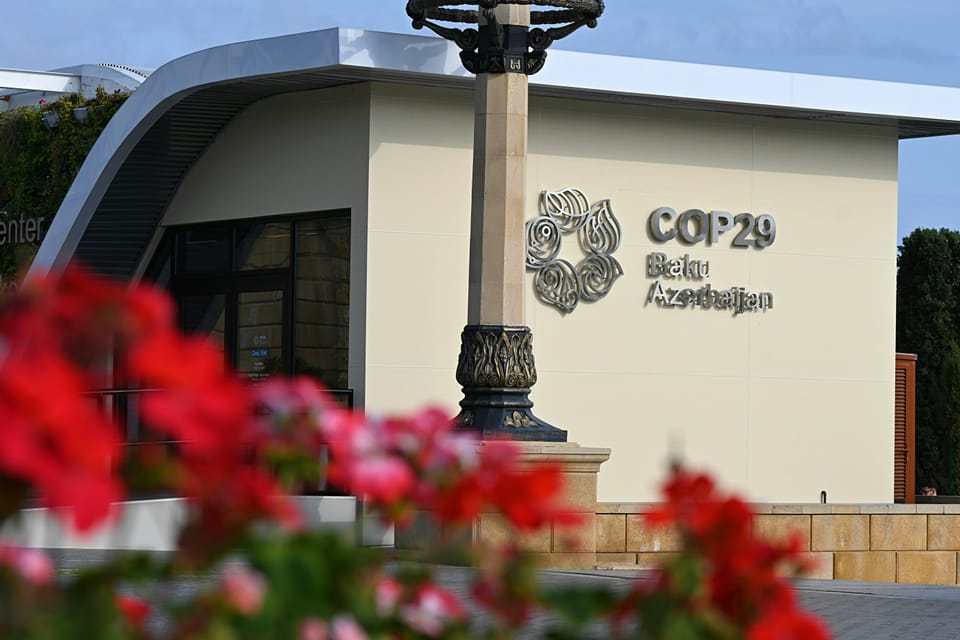Sustainability leaders head to COP29 with dampened enthusiasm

Donald Trump’s recent reelection as US president and new allegations that COP29 organisers are promoting oil and gas deals have massively dampened sustainability leaders’ enthusiasm as they head to Baku for the UN’s annual climate change conference.
While the urgency of the climate crisis is ever more undeniable, many believe the two-week event starting on November 11 in Azerbaijan – dubbed as the ‘finance COP’ for its focus on unlocking the funds necessary for the climate transition – is unlikely to yield any ambitious results.
“While I'd like to be proven wrong, I would anticipate COP29 will go down in history as one of the most futile COPs, and the bar for that was already pretty low,” commented US-based climate risk expert Mark Trexler, adding that he would not be attending this year’s conference.
New Trump presidency threatens global climate goals
According to him, “it was already going to be a strange COP”, given that its host country, Azerbaijan, is a massive oil and gas exporter, and that the summit is presided by oil and gas industry veteran Mukhtar Babayev.
But with this week’s US presidential election result and Donald Trump – who has repeatedly called climate change a “hoax” – set to take back the White House in January, “it's going to turn into two weeks of hand-wringing over ‘what now?’.”
One of the first things Trump did in his last mandate was to withdraw the US (the world’s largest polluter) from the Paris Agreement – and during his 2024 campaign, he promised to roll back most of the climate policies implemented under President Biden.
Read also: Trump president – US sustainability leaders vow to ‘charge ahead’
Climate finance in the spotlight
In this context, Trexler believes Trump’s election is set to make the approval of a ‘New Collective Quantified Goal’ – a climate finance target to be delivered by rich countries to help developing economies deal with the cost of a changing climate – even less likely.
The previous target was set in 2009 at US$100 billion a year by 2020 – and was only met in 2022. Now, the World Economic Forum is calling for a new target of US$1 trillion a year by 2035, considering the growing cost of coping with frequent climate catastrophes.
But the World Resources Institute expects a more multifaceted outcome to COP29: “Currently, it seems likely that the goal will consist of multiple targets reflecting different types of finance flows, such as public versus private,” the organisation said.
Article 6 carbon market in jeopardy
It is also expected to make negotiations to finalise a UN-managed carbon market, governed by Article 6 of the Paris Agreement, more difficult, despite the recent progress achieved at a meeting in Oman.
The purpose of Article 6 is to set the rules for the trading of carbon units between countries, to help each other meet nationally determined contributions (NDCs), or domestic decarbonisation goals.
The concept was introduced in 2015 upon signing the Paris Agreement, but countries have since failed to agree on the details and level of oversight of the carbon trading mechanism, with the US promoting a “light touch approach” while the EU and some African and Latin American countries wanting stronger integrity rules to ensure real impact.
COP29 chief promoting oil and gas deals
Even as last year’s COP28 resulted in a global agreement to “transition away from fossil fuels”, COP29’s Chief Executive Officer Elnur Soltanov was recently filmed discussing new investment opportunities in the sector as part of an undercover investigation by NGO Global Witness.
In the recording, Soltanov talks about “a lot of gas fields… to be developed” in Azerbaijan and offers to put his interlocutor in touch with the country’s state-owned oil and gas company SOCAR to discuss commercial opportunities.







Member discussion